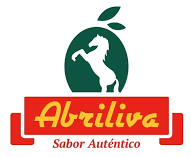- Every step counts on the thrilling path of the chicken road game, testing your strategy and courage for big wins.
- The Mechanics of the Chicken Road Game
- Understanding Risk vs. Reward
- Strategic Decision Making
- The Role of Timing in the Chicken Road Game
- Preparing for Unexpected Events
- Winning Strategies for the Chicken Road Game
- Learning from Experience
- Community Engagement and Collaborative Learning
- Conclusion
Every step counts on the thrilling path of the chicken road game, testing your strategy and courage for big wins.
The chicken road game presents a unique blend of strategy, excitement, and risk, where players navigate a precarious path filled with various traps and opportunities for gaining rewards. As you embark on this thrilling journey, each step becomes crucial as you weigh the risks against the potential gains. The inherent uncertainty keeps players on edge, making every decision pivotal. The goal is clear: progress as far as you can while making wise choices along the way.
At its core, this game encapsulates the essence of gambling, where fortune favors the bold, yet caution is equally rewarding. Players must learn to balance their ambition with a pragmatic approach. The further you traverse down the road, the more significant the rewards become, but with risk comes the possibility of failure. This dynamic creates a compelling narrative that parallels the experience of many casino games, where the stakes rise progressively.
In this game, your ability to strategize effectively can mean the difference between walking away with hefty winnings or losing everything in an instant. Thus, understanding the mechanics of the game is paramount. Key elements such as timing, choice of actions, and an awareness of your surroundings can dramatically influence the outcome of your adventure.
Ultimately, the chicken road game serves as an engaging metaphor for life’s broader experiences, illustrating the balance between taking risks and making informed decisions. As players navigate through challenges, they also acquire deeper insights into their own decision-making processes, enhancing their overall experience and enjoyment.
The Mechanics of the Chicken Road Game
The mechanics of the chicken road game involve navigating a winding path dotted with traps and rewards. The simplicity of the game mechanics belies the depth of strategy required to succeed. As players progress, they encounter various checkpoints where decisions must be made—either to continue on the path or to take a safer route. The complexity lies in understanding which path offers the highest reward for the least risk.
Initially, players may find that the first few steps yield a minor advantage, encouraging them to take bolder risks as they gather confidence. However, this is where many players falter. The temptation to continue stepping forward can lead to unfavorable outcomes if not carefully moderated. Therefore, one of the crucial strategies is to assess the situation after every few steps.
| Low | Minimal | 1-3 |
| Medium | Moderate | 4-6 |
| High | Significant | 7+ |
Selecting the right moment to halt is as vital as deciding when to advance. Waiting too long might mean missing lucrative opportunities, while stopping too soon can lead to an unsatisfying experience. Monitoring the progression of the risks and rewards helps players make astute choices as they continue down the path.
Understanding Risk vs. Reward
As players delve into the dynamics of risk versus reward, several factors come into play. Recognizing the types of traps that lie on the chicken road is essential for creating a sound strategy. Traps can take many forms, such as sudden shifts in gameplay or unexpected challenges that disrupt the journey. Understanding these traps enables players to devise better strategies for navigation.
Moreover, the psychology behind risk assessment plays a significant role. Players must consider their comfort levels with risk, varying from someone who thrives on high-stakes situations to another who prefers to take calculated risks. As you engage with the road game, you cultivate a personalized understanding of risk, ultimately impacting your success.
Strategic Decision Making
Strategic decision-making is a critical skill in the chicken road game. Each player must develop their style, often based on experiences and outcomes from previous plays. This personalized approach lends itself to unique strategies that encompass not only the immediate rewards but also the long-haul trajectory of the game. It’s necessary to be adaptable, adjusting your strategy as circumstances change.
Utilizing data from previous rounds can also guide players in making informed decisions. Whether assessing how likely they are to hit a trap based on past experiences or evaluating their current state in the game, utilizing data becomes invaluable. Insights gathered can enhance future gameplay and overall strategy development.
The Role of Timing in the Chicken Road Game
Timing is an essential component within the chicken road game. The optimal moment to take risks can significantly affect the outcome of the game. Players must keenly evaluate each moment, weighing the potential for increased wins against the threat of loss. This constant tension between advancement and caution drives the game’s excitement.
Understanding timing extends beyond individual decisions regarding steps. Players must also consider the patterns that arise throughout the game. Certain phases may reveal trends that can be leveraged to maximize wins. Recognizing these periods and adapting accordingly can lead to a more successful game experience.
- Identify Patterns: Look for repeated opportunities or traps that appear frequently.
- Evaluate Win/Loss Ratios: Understanding your performance can inform future tactics.
- Adapt Your Strategy: Be flexible to changing dynamics within the game as you progress.
Mastering timing also involves acknowledging psychological factors. Players often experience increased anxiety as they accumulate winnings. This added pressure can cloud judgment and lead to impulsive decisions. Fostering a calm mindset and focusing on logical assessment can prevent hasty choices that might escalate risks excessively.
Preparing for Unexpected Events
No game is without surprises, and the chicken road game is no exception. Players must maintain a readiness for unexpected events, as these can arise unexpectedly, causing shifts in gameplay dynamics. Being prepared for surprises can help players maintain their composure and adapt effectively to new circumstances.
Whether it’s an unexpected trap that challenges your decision-making or a surprise reward that elevates your position, remaining flexible is key. A well-prepared player not only rebounds from setbacks but also capitalizes on unforeseen advantages. In this way, preparation plays a critical role in fostering a successful game strategy.
Winning Strategies for the Chicken Road Game
Ultimately, winning at the chicken road game entails developing a robust strategy that incorporates various factors, including risk assessment, timing, and adaptability. Establishing clear objectives and prioritizing them will outline the way forward. Knowing when to press on and when to halt is vital for maximizing your gains and managing your risk exposure overall.
Experimentation becomes a valuable component of a player’s strategy. Each session offers the chance to explore new tactics and adapt based on the most effective outcomes from previous games. Embracing the uniqueness of each game enriches the overall experience and reinforces the understanding of what strategies produce wins consistently.
Learning from Experience
Experience is perhaps the most significant teacher when it comes to the chicken road game. As players venture further down the path, they encounter numerous scenarios that contribute to their learning journey. Reflecting on each game’s outcomes, both favorable and unfavorable, refines skills and enhances understanding.
In analyzing past games, players can cultivate a greater sense of awareness about themselves as well. Recognizing emotional triggers and responses during gameplay can lead to more effective strategies. Understanding how one’s feelings influence decisions can further inform methods for better control over gameplay.
Community Engagement and Collaborative Learning
Engaging with other players in the chicken road game community fosters collaborative learning. Sharing insights and strategies can help uncover various approaches that may not have been considered previously. Online forums and gaming communities provide fertile ground for exchanging knowledge and enhancing overall skills.
The social aspect of gaming can offer support and encouragement, aiding in personal growth as players learn from both their experiences and those of others. Building a network can empower players to take calculated risks and embrace the competitive spirit, ultimately enhancing their gameplay journey.
Conclusion
As you navigate the thrilling path of the chicken road game, remember that the journey is as vital as the destination. Each step taken is an opportunity to refine your strategies and understand the delicate balance between risk and reward. Armed with the right mindset and insights, players can not only achieve impressive wins but also cultivate invaluable skills that enhance their overall gaming experience.


